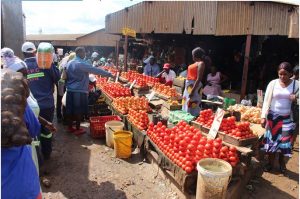While many African countries are competing to lure investors into their agriculture sector, a lot still needs to be done in order to clearly identify winners and losers. A formula for winning in African agriculture https://www.mckinsey.com/industries/agriculture/our-insights/winning-in-africas-agricultural-market?cid=other-eml-alt-mip-mck&hlkid=d31b21d5ace243d3b2ce17001f2c9ca1&hctky=2883691&hdpid=235f0b4f-dc4a-4226-98ca-e6c36e7703cd is not yet revealing the extent to which smallholder farmers and other small value chain actors will benefit from Private-Public-Partnerships (PPPs), for instance.

Importance of taking into account economic and social factors at local levels
So far, there is some proof that PPPs are ideal for road construction, not for agriculture. Where market facilities have been set up, for example Johannesburg market in South Africa, it has largely been an exclusive private sector initiative. Winners under such arrangements are a few elite farmers and value chains at the expense of smallholder farmers in marginal areas and local markets. PPPs should take into account circumstances of different farmers including those who have been forced into agriculture by push factors like retrenchment. This group can be classified as being in the social impact category and household-driven as opposed to career path-driven.
Due to the centrality of agriculture in African countries, agriculture is full of self-starters who have taken agricultural entrepreneurship as a career path. For most households, a large portion of agricultural income goes to cover social or household need as opposed to business requirements. There is also not much separation between business and family as well as between owners and business. Records are not separate from household income. Besides being agricultural-depended, the majority of agricultural activities are more of social enterprises, mostly informal and unregistered. However, their major strength is that their agribusinesses are sources of livelihood and there is no way they will want such businesses to collapse. They just want to earn an extra dollar for meeting basic needs like health and school fees. They don’t grow much but continue thriving for years. PPPs should not upset these actors and ecosystems.
Need to recognize profit-driven value chain actors
The needs of dynamic and profit-oriented value chain actors should also not be ignored under PPP deals. These value chain actors include agro-dealers and traders at different levels. Assessing this group can take into account cash flows, innovation, business competitiveness, environmental competitiveness, formality, market establishment, separation of business from family and out-reach. Active value chain actors need a lot of innovation in order to earn the level of profit that will sustain the business. Unfortunately, in terms of funding and capacity building, financiers continue to look at traditional collateral and end up giving loans to people who do not need the money because they already have it. PPPs may end up financing people who are not business-driven but have all forms of collateral when it might be better to work with a few economic actors who have their niche markets.
charles@knowledgetransafrica.com / charles@emkambo.co.zw / info@knowledgetransafrica.com
Website: www.emkambo.co.zw / www.knowledgetransafrica.com
eMkambo Call Centre: 0771 859000-5/ 0716 331140-5 / 0739 866 343-6
